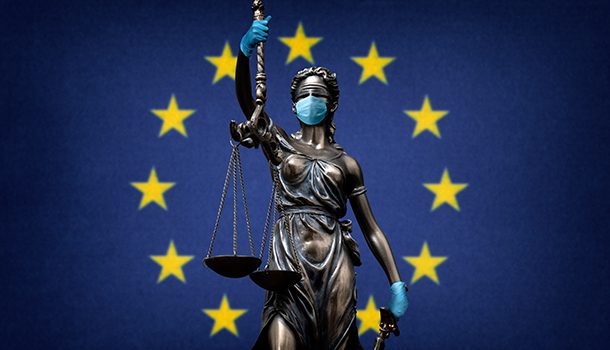A virus, its cure and the role of political philosophy

It is in times of crisis when most of the great ideas in philosophy have been formulated. Great philosophers of all times wrote in periods of difficulty, of change: Plato, Machiavelli, Hobbes, Locke and Rousseau, to mention a few of the authors that we discuss in the course Classics of Political Theory.
While political philosophy is always one of my preferred subjects to teach, I have to say that to do it in a period like the one that we are leaving is even more fascinating. Some of the most important questions formulated by the great philosophers return to us in the context of a medical emergency. Great topics such as the relation between the individual and the community, the notion of freedom and its limits, the good leadership…none of those are new debates, but they re-appear under a new light in the times we are living in.
Although we have a multinational academic community and our students or professors come from very diverse countries, many of us have lived in societies characterized by stability, peace and welfare. And this habit of living in a very safe and comfortable environment (Prague and the Czech Republic are wonderful places in this aspect) should not make us forget the fragility of democracy. The COVID crisis made it evident.
As a political scientist, this is the biggest lesson I will take from this crisis: democracy, although it might look very solid to us, cannot be taken for granted and needs to be defended by the citizens. And this is precisely what democracy is about: a group of people that decide to live together, sharing some basic rules and with mechanisms to make decisions about where the voice of each of them is to be heard. Thus, democracy needs active citizens, not just people that accept and respect the law, to be truly implemented. As the French sociologist Alain Touraine put it, democracy can only survive if it is backed up by beliefs, by faith in political freedom, by civic virtue. If in our societies individuals just care about themselves and their private interest, democracy will not last long. Obviously, we cannot expect every citizen to invest a lot of time into political affairs. However, it is important that every citizen cares about politics, and tries to be informed of what is happening and the different interpretations and options that political leaders propose. If, on the contrary, citizens desert public affairs and let politics be governed as if it is another service that we purchase, democracy and our way of living are doomed.
The medical emergency has held up a mirror showing what our societies could become. We have experienced situations in many countries where governments have decided to use emergency powers that restricted our constitutional rights in a temporary form. The reason might have been noble; to try to stop the sickness from spreading, but the effect was the limitation of our liberties. I hope that this period has helped us to understand the importance of the system of rights and freedom that we enjoy in the democratic countries, and the need to protect it. And as I said before, to defend it you do not need great actions, but something as simple as caring for others, caring for the community. Let’s hope that one of the effects of the COVID crisis will be precisely this; the strengthening of the link between us and the rest, between the individual and the community. If this is one of the effects of the crisis, we can at least find a very positive thing amongst so many dramatic consequences of the medical emergency.
Related Articles
UNYP Chronicle Newsletter
The e-mail address you provide will be used only to send you the newsletter. Your privacy is important to us.
For more information download our UNYP Brochure.

Contacts
University of New York in Prague
Londýnská 41, 120 00 Praha
ID no: 25676598
Phone:
+420 224 221 261
![]() Skype
Skype
Email: unyp@unyp.cz








